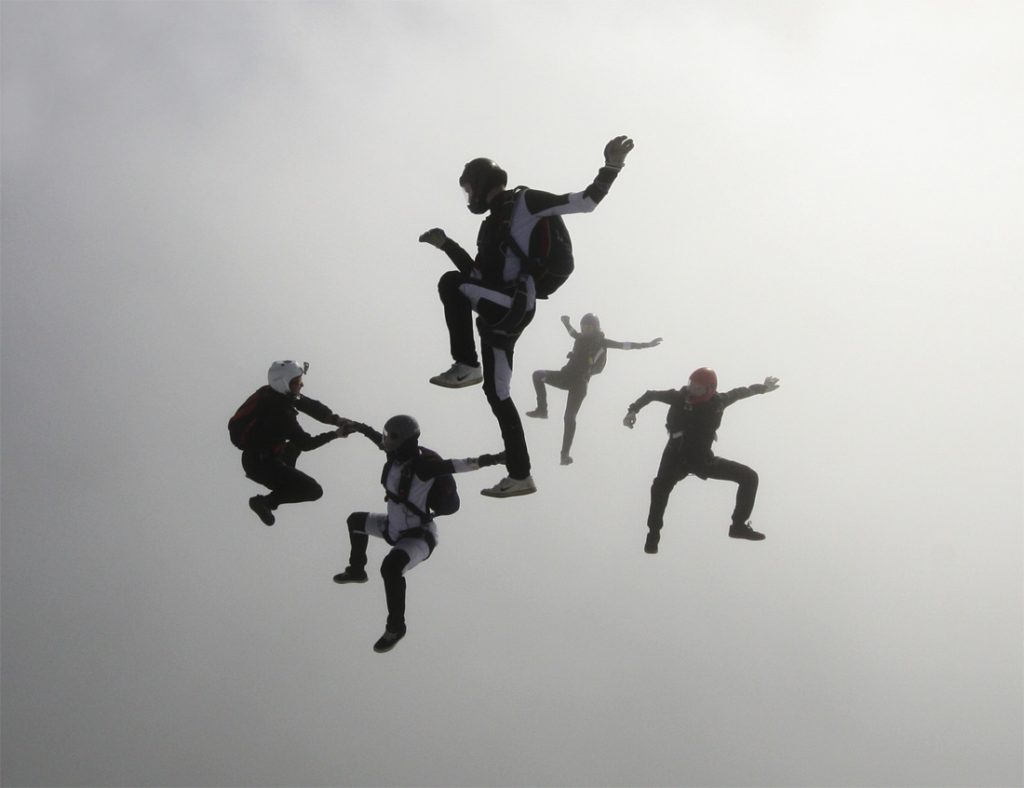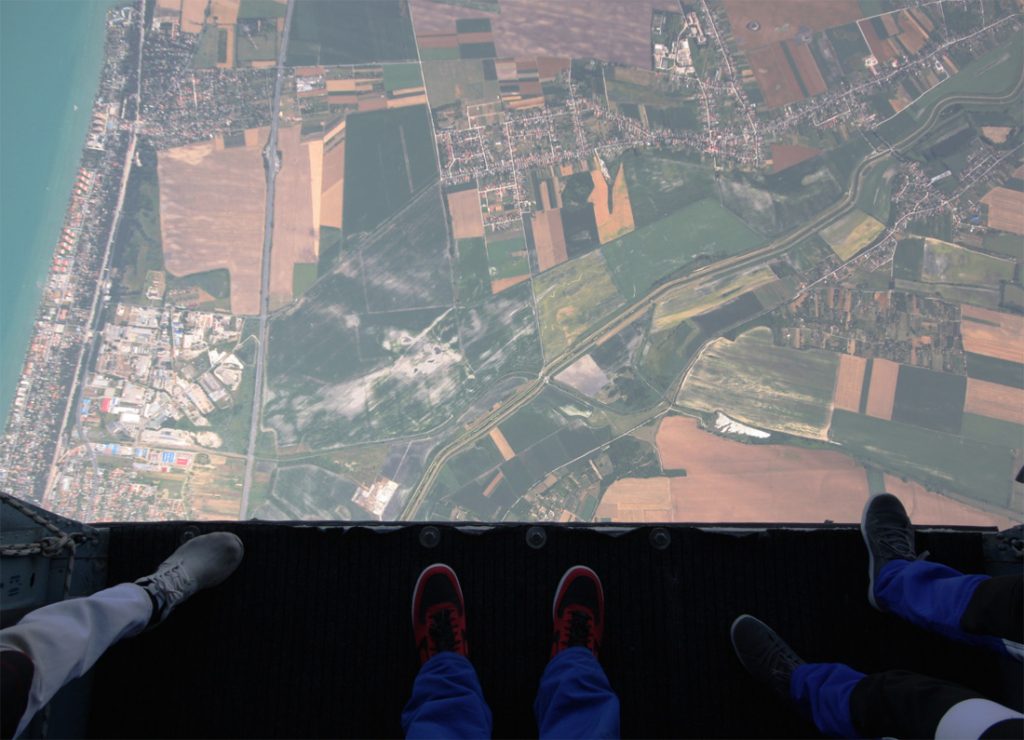There is a lot to learn across your career as a skydiver. Expanding one’s brain is a process the starts right from the blocks and, if you are doing it right, never stops. Along the way, there are things that you have to know in order to progress through to new levels and ratings, yet there is also things you can know that will make you a better skydiver in terms of your safety and awareness, and also contribute to your smooth and efficient progression.
Parachuting from aircraft has diversified into many different disciplines – some may draw you irresistibly towards them but others you might never touch with a long stick. Regardless of how you embrace the zoom, one thing is constant and true – the weather rules over us all. Some of these disciplines have stricter parameters for operation than others – an accuracy competition has to stand down in all but the gentlest wind while hot shit canopy pilots are unhampered buy much more, whereas low cloud might keep all matters of freefall in stasis while the swoopy types can still get their kicks from within sight of the ground.
We can all benefit from taking a little time to understand more about how the weather works. You don’t need to become an expert – but the further on your brain gets from it being either ‘too windy’ or ‘not too windy’ the better. At the very least, investing in a bit of knowledge will make you more interesting to talk to when everyone is standing around looking up at the sky and bitching about the conditions. It might also save your life.

Student Status:
When you are brand new to skydiving the dividing line between too windy and yahoo giddy up is positioned way over on the too windy side. The restrictions are pretty heavy to allow for safety while you are getting the hang of it so some patience is required – so this is the perfect time to embrace the learning process and seek the benefits of going above and beyond with your ambitions. Everything is new and there is a lot of it, so hoover up all that is offered. An important lesson to understand early on is that much of what is taught in skydiving in delivered with more than a smattering of opinion – and there is no shortage of those who are absolutely sure that their way is the best way and what that other guy said is horseshit. Developing a mindset of enquiry from the start will help you to filter the important information and use it properly. It is too windy for you to jump. Why is it too windy? Why is it too windy for you? It is raining. Why is it raining?
Down The Road:
As soon as you are out of that student getup and in your own gear then you are fair game for being quizzed in the plane by anyone else who has not bothered to find out the vital information for themselves and needs help at the last minute. It really doesn’t take a lot of effort to learn the particulars about the situation you are about to skydive into, and knowing a few simple things can make you look much more like a bad motherfucker and much less like a clueless mug. Can you identify which way is North? Do you know what the wind is doing right now both at altitude and on the ground? Continued learning is one of skydivings great gifts – everywhere you look there is always extra distance to go.

Crossover Skills:
If anything, skydiving is on the more forgiving side of all the sports that involve a canopy over your head. The geographical spaces we use for jumping out of planes are all different but with lots of base similarities – a runway, a few hangars where the aeroplanes sleep, a power line or two to avoid, a bar where the important drinking happens. All of skydiving’s sisters and cousins are much more intimately involved with the weather. If you find yourself drawn to Paragliding or BASE jumping then you will be spending a lot more time in places where the issues you can (and will) face become magnified by the terrain. The world has no shortage of those who believe that because they can perform a big bad swoop along the manicured grass then they possess the skills to fly a speed wing through a six foot gap in an alpine forest. Even a cursory glance at the incident reports will demonstrate how many accidents could have been avoided if just a little more knowledge had been applied. Skyjumps happen in a controlled environment – the perfect time to learn.

Would You Like To Know More?
This, and the following articles are not designed to be anything approaching comprehensive information – they are assembled to point you in the right direction by covering the main topics in a general, encouraging and hopefully entertaining way.
The weather on our planet is effected by things on both the grandest scale and the most intimate – from national television channels depositing region-wide possibilities to conditions able to affect you and you alone.
Part two has a look and weather in its biggest forms, such as fronts, cloud formations and upper winds.
Part three points you toward some of the popular resources you might use to grow your brain
Part four finishes up by focusing on more localised concerns like turbulence and thermals.
